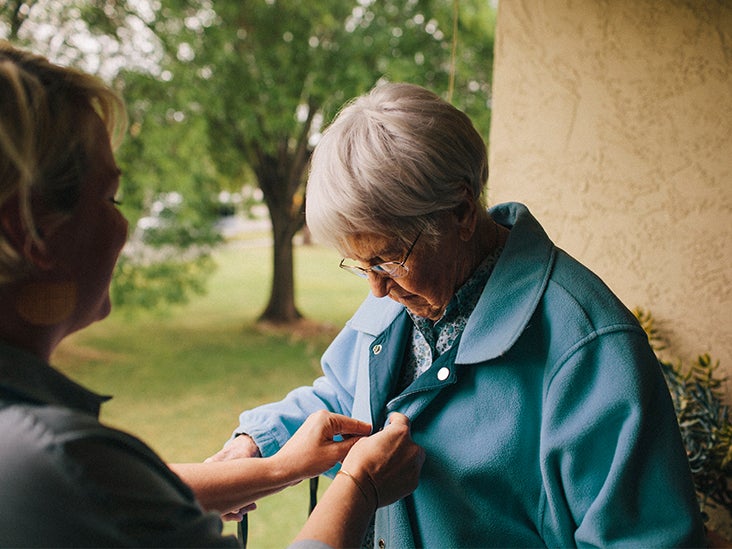Does Medicare Cover Assisted Living?
Table of Content
Part C plans include benefits provided in parts A and B and sometimes coverage of additional services, such as vision, hearing, and dental. The other two “parts” of Medicare, Part C and Part D , also don’t cover assisted living costs. Some have enrollment caps and long waiting lists to qualify for assisted living coverage.
As your parents age, it’s comforting to know there are many resources that can help you on the journey. The government is among the groups that can help you provide high-quality care for an aging parent. Seniors who live on their own often face unique challenges as they age. It can be harder to perform the tasks needed to maintain a home, and mobility may also become an issue.
Does Medicare Cover Assisted Living Costs In 2023?
Most notably, it does not cover the cost of long-term care, including assisted living facilities or any other long-term residential care, such as nursing homes or memory care. According to the National Institutes of Health and Eldercare.gov, an assisted living facility is a long-term care option combining housing and daily self-care support services. Typically, assisted living facilities don’t offer full-time skilled nursing care, but they might help monitor your health and manage your prescription medications. You may be wondering about Medicare coverage of assisted living situations. Medicare doesn’t cover the cost of assisted living facilities or other long-term residential care, such as nursing homes or memory care facilities.
Contact your insurance provider for more information on what your private insurance covers. Residential care for the elderly in a care home costs an average of $4,300 per month, though costs can vary dramatically depending on amenities offered and location. The monthly fee is the same as that for assisted living, according to Genworth Financial. Care homes and assisted living facilities are similar in price because they offer a similar level of care. Memory care communities are unique because they’re the only type of senior living specifically dedicated to caring for seniors with cognitive impairments like Alzheimer’s or dementia.
How Do I Know If An Assisted Living Facility Accepts Medicaid
You must be admitted within 30 days of leaving the hospital for an illness or condition related to the hospital stay. Your doctor must certify that you need daily skilled care from, or under the supervision of, skilled nursing or therapy staff. The care at the skilled nursing facility must begin within generally 30 days of leaving hospital. You do not need to have another 3-day qualifying hospital stay if you need to re-enter a skilled nursing care facility again within 30 days of stopping care or leaving the facility. New Jerseys Medicaid program is called NJ FamilyCare and it can pay for assisted living. It can cover some or all expenses for eligible seniors, giving them access to high-quality care they would otherwise be unable to afford.

The hospital stay must have been inpatient and not merely time spent in an emergency room or under observation. Also, the day of discharge does not count toward Medicare’s 3-day minimum stay requirement. The patient must have been admitted to a Medicare-certified facility within thirty days of the hospital stay. Most people who enter nursing homes start by paying for their care out-of-pocket. Since the specific costs and coverage in parts C and D can be different from plan to plan, it’s important to compare multiple plans before selecting one.
Are nursing homes included in Medicare coverage? Why or why not?
A doctor must certify that you need help with activities of daily living, such as bathing, dressing and eating. For more information, contact your regional VA office or an accredited veterans service organization. You’ll find assisted living residents enjoying games and trivia activities, movie nights and shuttle services, as well as hair salons and stocked libraries. If your loved one needs a nursing-home level of care , or they have dementia, it should be fairly straightforward to qualify medically. Im a unit manager in New Jersey looking for a assisted living willing to take a patient with medicaid.

Along with retirement savings, there are some options you might want to consider. Even though Medicare doesn’tcover assisted living itself, you’ll still need medical care and services. Besure to reviewyour plan options under Medicare before selectinga plan. Although these services maynot be given in an assisted living facility, you’ll likely still need to usethem. In fact, some assisted living facilities can help coordinate medicalservices with your healthcare provider.
We also compare care homes to other senior care options, explore the cost of care homes and how to pay, and answer some frequently asked questions about residential care homes. Skilled nursing care is used for when people are facing serious medical conditions that require care 24 hours a day, usually following a hospital stay. Assisted living care services may only be needed once a day or once per week. Traditional Medicare covers only certain health services to those residing in an assisted living facility. Meanwhile, some Medicare Advantage programs may only pay for services that help people remain in their homes.
A residential care home for the elderly is a type of senior living. Care homes provide a similar level of care to assisted living facilities, but are much smaller, typically housing ten or fewer residents. Residents receive personal care assistance, meal preparation, and more services. Nursing homes provide the highest level of care of any senior living option.
Assisted living facilities help residents with everyday, nonmedical tasks, which Medicare typically does not include. If you move in or out of a nursing home or other institution, you can switch Medicare drug plans at that time. In this situation, “other institutions” do not include assisted living, adult living facilities, residential homes, or any kind of nursing home that’s not certified by Medicare or Medicaid.
The short answer is that no, Medicare does not cover the cost of assisted living in New Jersey. Assisted living facilities are considered to be a residential setting and not a clinical setting, . There is a small segment of the population that is able to take advantage of dual-eligibility, meaning these individuals are able to receive Medicare and Medicaid coverage. For dual-eligibles, Medicare’s benefits will typically pay the largest portion, and Medicaid will pick up the remainder. In order to qualify for dual-eligible status, certain income restrictions and other financial conditions apply.
There is a Medicare hotline at MEDICARE where you can ask questions and learn about the possibilities for your loved one. Alternatively, you can log onto the Medicare website and start a live chat with an expert. A licensed insurance broker will call you soon to discuss how long-term care insurance can help you pay for senior living. Alternative payment programs also have a limited number of spots available, often significantly fewer than Medicaid. Because the waiting list is quite common and lengthy, many seniors will apply well in advance of their actual needs.
Can I please get a list of facilities that can help place our beloved resident. You can switch Medicare drug plans at any time while you’re living in the institution. The best kind of support for your aging parent comes from your parent’s entire community.
MEDICARE MADE EASY
Angela has also written about health and wellness for publications such as the Washington Post, USA Today, Everyday Health and Verywell Fit. She’s passionate about helping people make healthier decisions through accurate journalism that delivers the facts and puts them in context. Seniors Guide has been addressing traditional topics and upcoming trends in the senior living industry since 1999. We strive to educate seniors and their loved ones in an approachable manner, and aim to provide them with the right information to make the best decisions possible. Federal employees, members of the uniformed services, retirees, their spouses, and other qualified relatives may be able to buy long-term care insurance at discounted group rates. Get more information about long-term care insurance for federal employees.
One-on-one assistance in navigating the Medicare Part D Prescription Drug Program, filing appeals and resolving delays on claims is offered. Long-Term Care Insurance information is also available, as well as personal help in filling out applications for state or local financial assistance. New to Medicare workshops, which also cover supplemental insurance, are held on one day and one evening each month. The decision to seek nursing home care is personal and can greatly benefit your loved one if they require a level of care you can’t provide. Although Medicare doesn’t typically cover nursing home care, other options are available to ensure your loved one receives the help they need. If you meet the requirements for home health care, Medicare generally covers part-time, intermittent home care nursing and other medical therapies, such as physical and occupational therapy.
Comments
Post a Comment